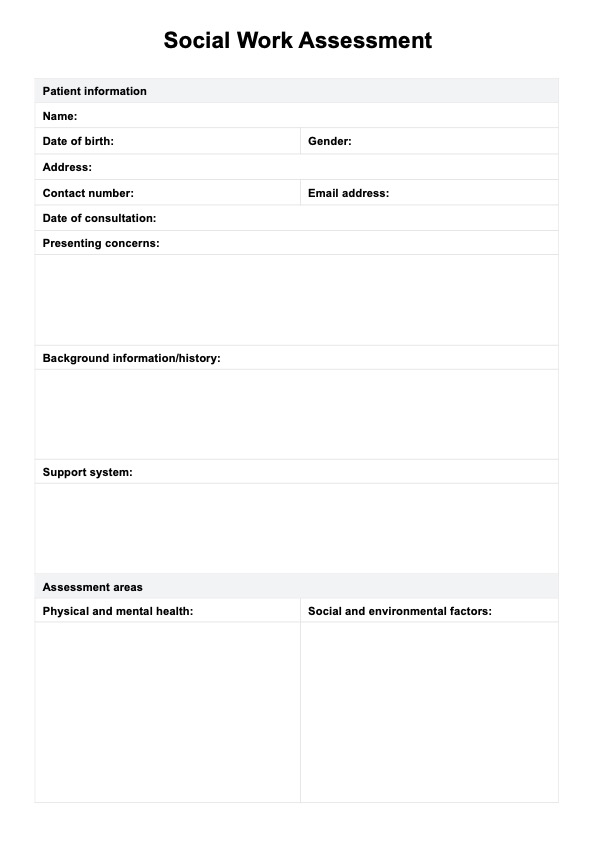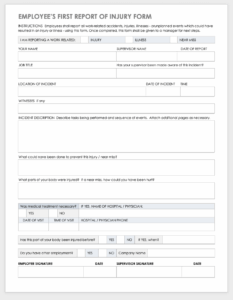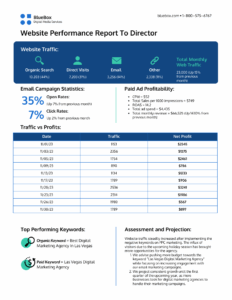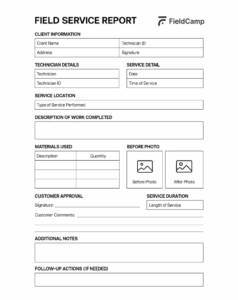In the demanding field of social work, assessing a client’s situation comprehensively and communicating findings clearly is paramount. It’s a complex dance of gathering sensitive information, identifying needs, evaluating risks, and formulating actionable plans, all while ensuring empathy and respect. Without a structured approach, the sheer volume of data and the nuances of human experience can easily lead to oversight or inconsistent documentation.
Imagine trying to build a house without blueprints, or navigating a new city without a map. That’s often what it feels like for social workers facing a new case without a clear framework for their assessment. A well-designed template provides that essential structure, guiding the assessment process from initial contact through to the formulation of an intervention strategy. It helps ensure that no critical stone is left unturned and that all relevant factors are considered.
This article will guide you through the invaluable benefits of utilizing a social work assessment report template, exploring why it’s more than just a document – it’s a vital tool that enhances professionalism, improves client outcomes, and streamlines the rigorous demands of social work practice.

The Cornerstone of Effective Practice: Why a Template Matters
Every social worker understands the immense responsibility that comes with their role. From safeguarding vulnerable individuals to empowering communities, the decisions made are deeply impactful. A robust assessment process is the foundation upon which all effective interventions are built, and a template serves as the blueprint for this crucial stage. It ensures a systematic approach, reducing the risk of bias and ensuring that all necessary information is collected to form a holistic picture of the client’s circumstances.
One of the primary advantages of using a template is the consistency it brings to documentation. Across different social workers, departments, or even over time, a standard format ensures that reports are uniformly structured and easy to understand. This is especially critical in inter-agency collaboration, where clear communication is key to coordinated care. It means less time deciphering varied report styles and more time focusing on the client’s needs.
Furthermore, a comprehensive template acts as a powerful memory aid and quality assurance tool. When facing complex cases, it’s easy for even the most experienced professionals to overlook a minor detail that could have significant implications. By prompting specific questions and requiring certain sections to be completed, a template minimizes the chance of critical information being missed, leading to more thorough and accurate assessments.
For new social workers, templates are invaluable training tools. They provide a clear roadmap for conducting assessments, helping them understand the scope of information required and the logical flow of a professional report. This not only builds confidence but also ensures that junior staff are adhering to best practices and agency standards from the outset, fostering a culture of excellence across the team.
Ultimately, a well-designed social work assessment report template isn’t just a document; it’s a tool that empowers social workers to deliver better outcomes. By simplifying the administrative burden, it allows practitioners to dedicate more energy and focus to direct client engagement, building rapport, and providing the empathetic support that is at the heart of their profession.
Key Sections You’ll Find in a Comprehensive Template
- Client Demographics and Referral Information
- Presenting Problem and Reason for Assessment
- Client History (Including personal, family, social, medical, educational, and employment background)
- Strengths, Resources, and Protective Factors
- Risk Assessment and Safety Planning
- Intervention Plan, Goals, and Recommendations
- Assessment Summary and Professional Impression
- Signatures, Dates, and Review Information
Crafting Your Own: Customizing a social work assessment report template for Your Needs
While a generic social work assessment report template provides an excellent starting point, the true power of this tool lies in its adaptability. No two social work settings are exactly alike, and the specific needs of different client populations or agency mandates will often require a tailored approach. Customizing your template ensures that it remains relevant, efficient, and truly reflective of the unique contexts in which you operate. It’s about making the template work for you, rather than you working for the template.
When adapting a template, consider the primary focus of your practice. Are you primarily working with children and families, adults with mental health challenges, older adults, or individuals experiencing homelessness? Each specialization will necessitate different points of inquiry and specific risk factors to assess. For example, a template for child protection will have extensive sections on neglect indicators and developmental milestones, whereas one for geriatric care might focus more on cognitive function, mobility, and caregiver support. Incorporating these specific considerations from the outset will make your assessments more targeted and effective.
Furthermore, it’s essential to align your social work assessment report template with your agency’s policies, procedures, and legal obligations. This might involve adding specific sections for mandated reporting, consent forms, or privacy notices. Regular review and feedback from your team can also help refine the template over time, ensuring it continues to meet evolving needs and best practices. A dynamic template that can be updated as practices evolve is far more valuable than a rigid, static one.
The thoughtful application of structured assessment tools streamlines workflow and elevates the quality of care provided. It facilitates a deeper understanding of clients’ circumstances, leading to more targeted and effective interventions. By embracing and customizing the power of a comprehensive assessment framework, social workers can continue to make a profound positive difference in the lives of those they serve. This systematic approach ultimately strengthens the profession and ensures that every individual receives the thorough, compassionate support they deserve.



